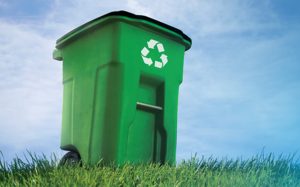How To Reduce Your Carbon Footprint
Pollution and carbon emissions are plaguing our environment everywhere we look. As the industrial revolution exploded, businesses and scientists took little time to evaluate the impact that these new inventions would have on our earth. You can be a big help to the planet by reducing your personal carbon footprint. If we all make changes to preserve what is here, then future generations can enjoy earth’s natural beauty for many years to come. Start eliminating your carbon footprint with these 5 steps.
- Don’t waste anything: Everything that you have can be put to good use. Bacon grease? Yep, keep it. It can be refrigerated for weeks, and it makes for excellent cooking. Old towels? Make them into car wash rags. Get creative with the things that you no longer need and repurpose them. Our lifestyle has grown us accustom to tossing something the second we no longer need it. Reduce, reuse, and recycle doesn’t just happen at a recycling plant. You can do the same thing at your home.
- Compost food: There’s no need to throw away uneaten food. Put it in a compost bucket! Have a small sealed bucket that sits outside that you dump your uneaten food in. It will rot and make great fertilizer for soil. That is the richest fertilizer out there that you can get—and it’s free! Your plants will be happy, and you will have completed the life cycle of the food back to the earth. You’ll see fuller and richer plants with your compost treatment.
- Donate instead of trash: If you can’t find another way to reuse something that you no longer need, then maybe someone else can use it. Donate your unwanted items to the Salvation Army so that people in need can have affordable things. It also gives you a slight tax break from donating items. Give your things a second life and let them benefit someone else. You never know what someone else might have a purpose for. Do your part in not filling up the landfill by giving it to someone else.
- Plastic:
- Get water bottles and stop buying plastic bottles: Plastic is killing our planet. It takes billions of years to break down, and we are making plastic at an unbelievable rate. There’s no way to completely stop the production of plastic, but you can make the decision to avoid buying it. Get a metal bottle to fill up with water to take around instead of buying cases of bottled water. You’ll get much more life out of that bottle, and you’ll be a part of the reduction of plastic in our oceans.
- Buy glass Tupperware: Stop buying cheap Tupperware made out of plastic. There are more durable options like glass that are better for the environment (and you). The glass Tupperware containers do a better job at storing your food, and then don’t junk up the landfills. You can safely microwave those without worrying about poisonous BPH chemicals leaking into your food. Whenever you are done with them, you can donate them, or send them to be recycled.
- Use beeswax paper to store food instead of plastic bags: Another plastic thing that clutters up our earth is plastic bags. You know about the plastic bags that you carry your groceries home in—I’m talking about the everyday sandwich bags that are in your cabinet. How are you supposed to keep food fresh? There are other alternatives, like reusable beeswax paper to wrap foods. It keeps prepared foods equally as fresh, and it’s created from a sustainable resource. You can reuse them for the entire year. Feel confident when you throw these away, knowing that they will quickly disintegrate because they are biodegradable.
- Turn off the lights and the faucet: We’ve all heard this before, but it bears repeating. Turn off lights and water when you aren’t using it. You’d be surprised at how many things are electricity vampires that suck up more energy than you know. By turning things off and unplugging them, you’ll save the planet and keep your utilities bill low. We all know that the amount of freshwater on this planet is less than 1%. Why would we ever waste such a precious commodity? Be mindful of what you use and how much you use.
Our Earth is a beautiful place, and we should strive to keep her that way. By being aware of how much you use, you can start to make changes to help you keep your carbon footprint as low as possible. Have a goal to leave this world better than when you found it.









